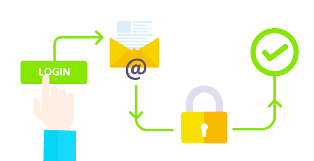Email authentication protocols are essential in the constantly changing field of cybersecurity because they protect people and organizations from the sneaky dangers of spoofing and phishing attacks. Comprehending the importance of strong email authentication becomes crucial as we explore the complex realm of digital communication.
The Threat of Spoofing and Phishing:
Attacks that utilize spoofing and phishing are two sides of the same malicious coin that seek to take advantage of email communication flaws. Phishing is the fraudulent practice of impersonating a reliable organization in order to obtain sensitive information; this is frequently done through misleading emails. Contrarily, spoofing entails using a false identity to trick the recipient into thinking the message is authentic.
Email Authentication Protocols’ Need:
Relying only on conventional security measures is insufficient in this era of sophisticated cyber threats. Email authentication protocols are a strong line of defense against spoofing and phishing attacks. These protocols guarantee that the recipient can trust the sender’s identity by verifying the authenticity of incoming emails.
The SPF stands for the Sender Policy Framework.
SPF is a straightforward but efficient protocol that confirms the sender’s domain’s legitimacy. It functions by giving domain owners the option to designate which IP addresses are permitted to send emails on their domain’s behalf. The mail server of the recipient verifies the legitimacy of an email by looking up the sender’s domain’s SPF record.
DomainKeys Identified Mail, or DKIM:
With the addition of a digital signature by DKIM, emails are sent with the ability for the recipient to confirm that the message was not changed in transit. The authenticity of the sender’s identity is strengthened by this cryptographic authentication. Using public and private keys, DKIM gives email communication an additional degree of security.
DNS-based Message Authentication, Reporting, and Conformance, or DMARC:
DMARC offers a complete framework for email authentication, expanding on SPF and DKIM. It gives domain owners the ability to decide how their emails will be handle in the event that SPF or DKIM checks are unsuccessful. Furthermore, by making reporting easier, DMARC helps businesses learn about possible phishing attempts and unauthorized use of their domains.
Advantages of Putting Email Authentication Protocols in Place:
Increased Credibility
Organizations can improve the reliability of their email correspondence by putting authentication procedures in place. This decreases the possibility that recipients will fall for phishing schemes by giving them a sense of security.
Decreased Risks of Phishing:
These protocols’ strong authentication greatly lowers the dangers connected to phishing attacks. It is more difficult for malicious actors to successfully impersonate legitimate entities when SPF, DKIM, and DMARC are in place.
Brand Defense:
Email authentication procedures help to safeguard a company’s brand by preventing unauthorized use of its domain. By doing this, the company preserves its good name and the confidence of its constituents.
Enhanced Deliverability of Emails:
Email service providers evaluate the authenticity of incoming emails using authentication protocols. By putting these protocols into place, email deliverability can be improve and crucial messages can be delivere to the right people.
Obstacles and Things to Think About:
Email authentication protocols have many advantages, but there are some issues that must be carefully considered before they can be successfully implemented. Businesses have to deal with problems like properly configuring records, handling false positives, and remaining alert to ever-evolving cyberthreats.
Last Words:
Email authentication protocols are like a rock solid defense against phishing and spoofing attacks in the world of cybersecurity, where attackers and defenders are always at war. The significance of putting strong authentication measures in place cannot be emphasized, especially given the ongoing advances in cyber threats. In order to maintain the integrity of their digital communication channels, safeguard stakeholders, and strengthen defenses, organizations need to adopt these protocols. They make everyone’s online experience safer and more secure by doing this.
See our other latest posts: document management software & Bybit



